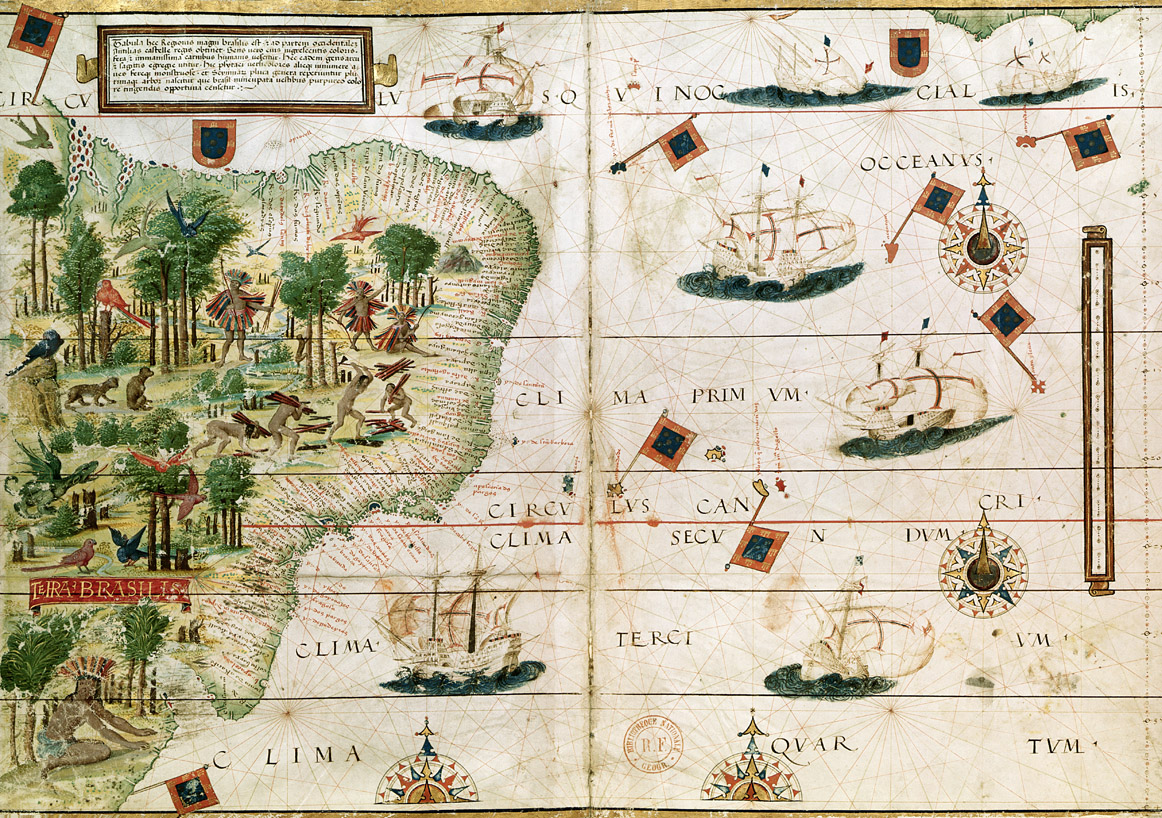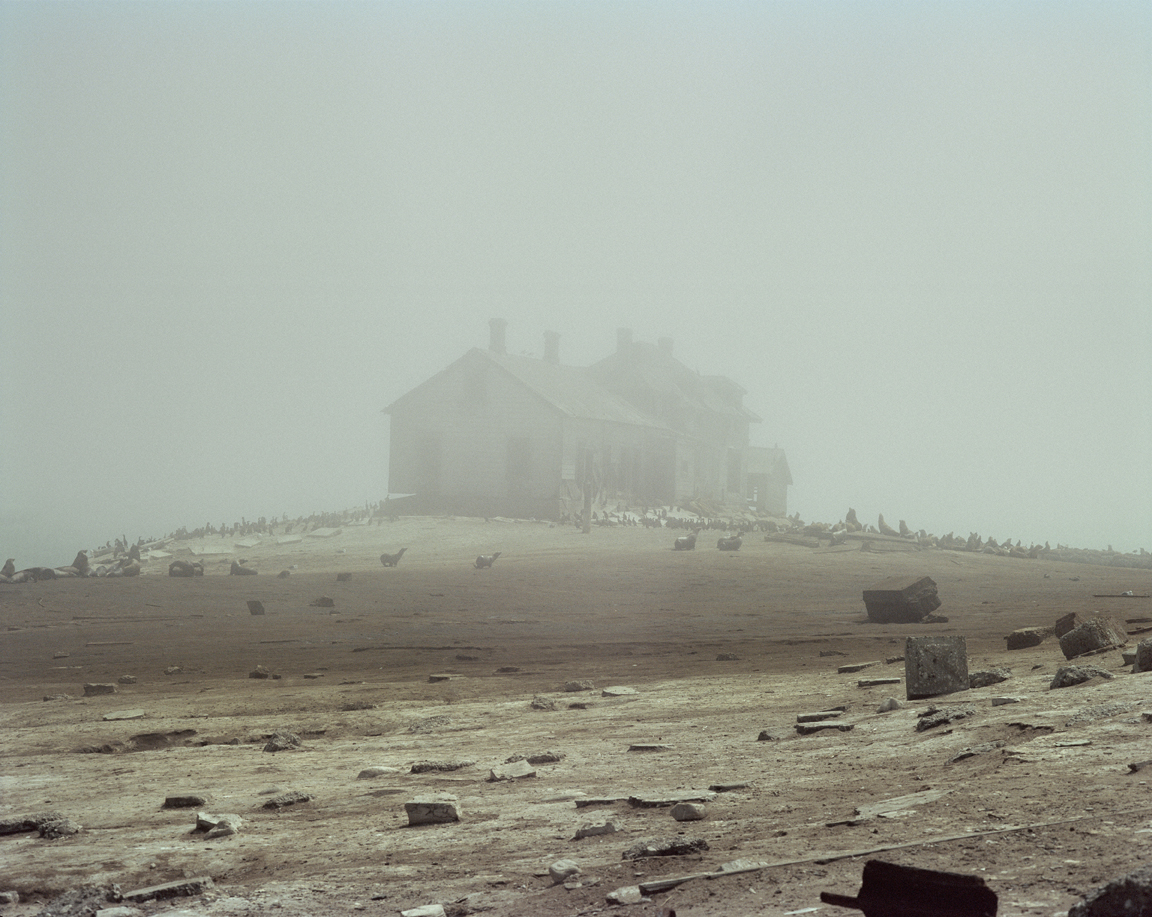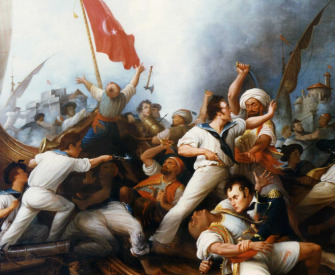The sea hath fish for every man.
—William Camden, 1605No Such Thing as Being Warm
Janet Schaw tours the ship.
We are now got on board, heartily fatigued, yet not likely to sleep very sound in our new apartments, which I am afraid will not prove either very agreeable or commodious—nor, from what I can see, will our ship be an exception to the reflections thrown on Scotch vessels in general, as indeed, nothing can be less clean than our cabin, unless it be its commander.
I hinted to the captain that I thought our cabin rather dirty. He assured me every vessel was so till they got out to sea, but that as soon as we were underway, he would stow away the things that were lumbering about, and then all would be neat during the voyage. I appear to believe him; it would be in vain to dispute: here we are, and here we must be for sometime. My brother has laid in store whatever may render our situation agreeable, and I have laid in a store of resolution to be easy, not to be sick if I can help it, and to keep good humor, whatever I lose, and this I propose to do by considering it what it is, merely a voyage.
As we have no passengers but those of our own family, we will have all the accommodation the vessel is capable of affording, and we can expect no more.
I am just now contemplating the various sensations our intended voyage and its destination produce in the little group around me, which includes my brother Alexander and the three Rutherfurd children I am bringing back to our friend John, their father, in America: Fanny, John, and William Gordon Rutherfurd.

Brazil and Atlantic Ocean, from the Miller Atlas, by Pedro Reinel, c. 1519. National Library of France, Paris.
Our bedchamber, which is dignified with the title of State Room, is about five feet wide and six long; on one side is a bed fitted up for Miss Rutherfurd and on the opposite side one for me. Poor Fanny’s is so very narrow that she is forced to be tied in, or, as the sea term is, lashed in, to prevent her falling over. On the floor below us lies my abigail [waiting woman]. As she has the breadth of both our beds and excellent bedding, I think she has got a most enviable berth, but this is far from her opinion, and she has done nothing but grumble about her accommodation, and I fear will prove a most complete abigail indeed.
We had not slept above an hour when my brother arrived; he let down the half-door to inquire after our health. We both woke with pleasure at his voice, and made him happy by assuring him we found ourselves much better than we expected.
Alexander, who was sadly fatigued, had got into his cot, which swings from the roof of the cabin; our two little men were fast asleep in a bed just below him when we were informed from the deck that they were going to weigh anchor. Everybody that was able got up to see this first grand operation. My brother descended from his cot, the boys sprung out of bed, all hands were on deck—hurry, bustle, noise, and confusion raged through our wooden kingdom, yet it was surprising how soon everything was reduced to order. In little more than a quarter of an hour, all was over, the watch was set, and nothing to be heard but the sound of the men’s feet moving regularly backward and forward at the helm and the crowing of a cock that had awoke from the noise. My brother, as he again retired to his airy couch, informed us in passing our stateroom that we were now underway and that we would be in the channel in a few hours, where we would have the finest view of the finest country in the world. He then gave poor Fanny some saline drops to settle her stomach, which had felt the very first motion of the ship, a circumstance that gives me much concern, as I fear she will find it too much through our voyage. As yet I am very well, and hope I will not be much hurt, though I must expect a little touch as well as others. My brother now mounted into his cot, the boys got to bed, we shut up our half-door, and in a few moments, we were all again in the arms of sleep.
But short must be the slumber in so unquiet and uncertain a situation: we were soon roused again by the voice of our captain, who was talking to my brother; and it was with no small vexation that we were informed by him that the wind had chopped about—and being now full in our teeth, it was impossible for him to proceed up the channel, and that it was necessary to change his course and go round by the north of Scotland. It is hardly possible to imagine a more disagreeable passage at this season of the year than this must be. However, my brother agreed; all hands were called, and hurry again filled the vessel. “About ship” was now the word, in the performing of which operation, everything was tumbled topsy-turvy. A few moments, however, settled us once more, and quietness would again have restored us to rest, had not the cock, as harbinger of day, repeatedly told us it was now morning.
There is no such thing as being warm, do what we will, and though we have but little wind hitherto, we are jolted to death by the motion of the ship in these rough seas. Yet the captain is every moment congratulating us on the smoothness of our vessel, which he declares is so soft in her motion that one may play at bowls on deck. However, as I am like to beat out my teeth every time I try to drink—and often after all am not able to bring the cup to such a direction as to obtain my desire—I cannot help thinking he rather overrates the gentleness of her motions, though the mate, in confirmation of what his captain says, asserts that last time he crossed the Atlantic even in a calm, they were forced to lie flat on their faces—and the hogs, who stubbornly refused, had their brains knocked out against the sides of the ship. How happy are we, who are only in danger of losing teeth and breaking limbs.
As I was amusing myself with my pen, and Fanny with her book, a little while ago, my brother came into the cabin and informing us the weather was tolerable fair. He had provided watch coats to secure us from the cold and begged we go with him up on deck, as he was sure a little fresh air would do us much good. We immediately accepted his invitation, and while we were preparing for this excursion, I asked my brother if he had seen all our crew and what sort of hands they were; for that, as I lay awake last night in bed, I heard a heavy groan (from that part of the steerage which is only divided by a few boards from our stateroom), when presently a voice called out, “What’s the matter, man?” On which the groaner (as I supposed) replied, “Alas! Alas! This is a hard pillow for threescore years to rest on.” My brother, smiling, took me by the hand and, reaching out the other to Fanny, bade us come along and we would probably discover our groaning neighbor. We now ascended the companionway, or cabin stair, when, judge of my surprise, I saw the deck covered with people of all ages, from three weeks old to threescore, men, women, children, and suckling infants. For some time I was unable to credit my senses; it appeared a scene raised by the power of magic to bring such a crowd together in the middle of the sea when I believed there was not a soul aboard but the ship’s crew and our own family. Never did my eyes behold so wretched, so disgusting a sight. They looked like a cargo of Jonathan Swift’s Yahoos, newly caught.

The Island (House), by Tim Hyde, 2012. C-Print, 47" x 60". The Island is a project being developed by the artist about a site in the Pacific Ocean where the human structures are being overrun by animals. © Tim Hyde, courtesy of the artist and Marso Mexico City.
It was impossible to account for this strange apparition till the captain informed me that they were a company of emigrants, whom the owner of the ship had made him smuggle aboard privately and had ordered be kept close under the hatches till we were out at sea. He vindicated himself by declaring that he was under the most absolute necessity of obeying the owner, whom he sincerely believed to be one of the greatest villains upon earth; that he and everyone was much surprised how we came to trust him, since his character as a scoundrel was notorious wherever he had lived; that the captain himself had been ruined by him and was now forced to serve him, as he had got his all into his possession and put it out of his power to make bread in any other way. To this he added many other particulars and summed up all by the comfortable intimation that the supercargo, the officer in charge of selling the ship’s cargo at its destination, was just such another, and put on board for the express purpose of cheating and deceiving us—the captain being thought too honest to perform this piece of duty. This tale he has also told my brother, whose goodness of heart induces him to believe it: but for my own part, I take it to be a forged story altogether, and that they are all alike.
As I am resolved no more to encounter these wretched human beings, I will have the more time to write. Indeed you never beheld anything like them. They were fully as sensible of the motion of the vessel as we were, and sickness works more ways than one, so that the smell which came from the hole, where they had been confined, was sufficient to raise a plague aboard. Faugh! Let me not think of it; it affects my stomach more than this smooth-sailing vessel or this shocking-rough sea, in which we are tumbling about so, that I can hardly hold the pen.
Janet Schaw
From Journal of a Lady of Quality. Schaw traveled to the West Indies, the colony of North Carolina, and Portugal before returning home to Scotland in 1776. In colonial America she watched a militia assemble for a review. “I must really laugh while I recollect their figures: two thousand men in their shirts and trousers, preceded by a very ill-beat drum and a fiddler,” she wrote. “They made indeed a most unmartial appearance.” A copy of her epistolary account was discovered by a British Museum researcher and published for the first time in 1921.




